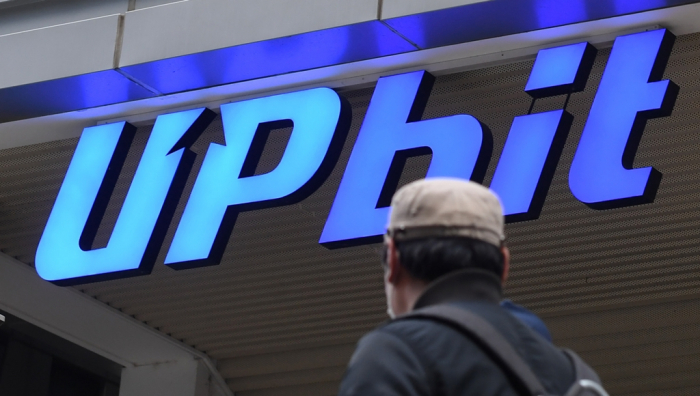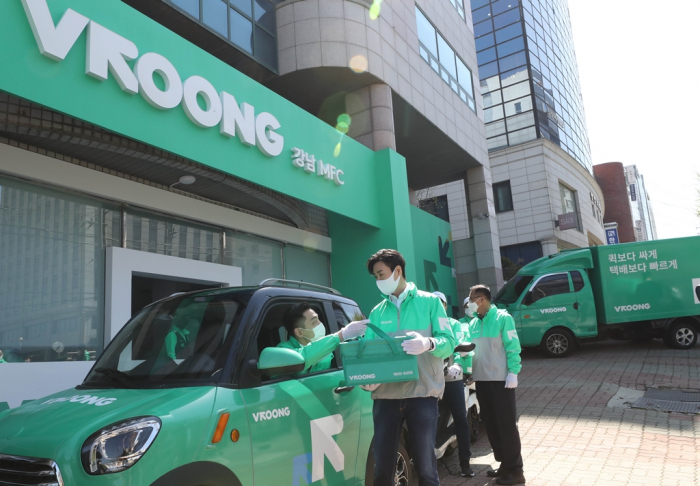Korean startups
Korean unlisted stock bubble bursts as interest rates rise
Unicorns such as Dunamu, Kurly and Viva Republica see over 70% plunges in their stock prices as IPO hopes fade
By Nov 30, 2022 (Gmt+09:00)
4
Min read
Most Read
LG Chem to sell water filter business to Glenwood PE for $692 million


Kyobo Life poised to buy Japan’s SBI Group-owned savings bank


KT&G eyes overseas M&A after rejecting activist fund's offer


StockX in merger talks with Naver’s online reseller Kream


Mirae Asset to be named Korea Post’s core real estate fund operator



Kurly Inc., Dunamu Inc. and other major South Korean unlisted stocks plunged as the fallout on asset prices from rising interest rates extended into the local over-the-counter (OTC) market.
Shares in Kurly, a grocery delivery service platform operator, recently traded at 30,600 won ($23.2), less than a third of their 116,000 won high hit in January, according to the country’s top local OTC trading platform U-Stockplus on Wednesday.
Stocks of Dunamu, the operator of South Korea’s largest cryptocurrency exchange Upbit, and Viva Republica Inc., the operator of fintech platform Toss, lost some 74% each from their peaks logged in November last year.
Kakao Mobility Corp., which runs the country’s most popular taxi-hailing app, shed about 80%, while the top travel and accommodation platform Yanolja Inc. more than halved.
Unlisted stock trends often portend the fate of other assets due to low trading volumes, industry sources said. But tumbles in those major startups’ shares accelerated as more of their industry peers went bankrupt amid growing borrowing costs.
“The impact of rising interest rates, which haunted stocks and real estate markets, was extending into unlisted stocks,” said an asset manager.
Smaller unlisted shares with a market capitalization of less than 500 billion won were barely traded as mounting concerns over startups erased demand. That not only made it extremely hard for investors to liquidate those assets but also to estimate their losses.
IPO HOPES VANISH
Investors had dreamed of a jackpot from unlisted stocks as promising companies in new industries such as fintech and bio listed their stocks, rewarding investors with large profits in the short term.
The fever for unlisted stocks intensified among retail investors in the first half of last year when the main Kospi lost steam after hitting record highs. Individuals sought opportunities in OTC markets as shares in newly listed companies such as KakaoBank Corp. and Kakao Pay Corp. rallied.
Investors made large bets on Dunamu, Kurly, Yanolja and others that were expected to go public. Dunamu and Yanolja had been predicted to list in the US. But such hopes faded away as global interest rate hikes dampened stock markets worldwide.
Dunamu’s market capitalization had risen to as high as almost 20 trillion won thanks to the frenzy on cryptocurrencies, but it skidded to 4.7 trillion won.
Kurly, which had targeted a US listing, is now preparing for an initial public offering on South Korea’s junior Kosdaq. Its market capitalization shrank to 1.2 trillion won from 4 trillion won earlier this year, suggesting most investors suffered losses. Its corporate value was predicted to fall below 1 trillion won when it goes public.
PRIVATE EXCHANGES
In the past, institutional investors had been major players in the market for unlisted stocks. But retail investors joined the market with private exchanges for those shares increasing.
Those exchanges such as U-Stockplus, Seoul Exchange and Angel League set up online platforms for unlisted stocks, which had mainly been traded through direct transactions, allowing retail investors to trade those shares.
Angel League introduced a service that allows individual investors to form a group for investments in large unlisted caps. The exchange’s customers founded some 200 groups as they could buy shares in promising startups with small money.
Among them, eight groups invested in Mesh Korea Co., which filed for court receivership earlier this week. They bought shares in the operator of the last-mile delivery service Vroong when the startup’s enterprise value was between 505 billion won and 630 billion won. Its current value for sale was estimated to have shrunk to around 60 billion won.

LACK OF INFORMATION
“It is high risk for groups of individuals to invest in unlisted stocks without institutions as they have no access to information on the companies,” said the head of a local asset manager.
Unlisted companies do not need to announce key information through a regulatory filing in South Korea.
Financial regulators took steps to protect investors. In June, the Financial Services Commission ordered trading platforms for unlisted stocks to create protection measures, including the mandate of occasional and regular disclosures by traded companies.
The number of traded companies on those private exchanges tumbled as many startups did not meet the requirements. Only about 60 unlisted stocks are dealt on U-Stockplus, far lower than over the 450 firms before the FSC mandate, making it even harder for users to exit from their investments.
Write to Eui-Myung Park at uimyung@hankyung.com
Jongwoo Cheon edited this article.
More to Read
-
 Leadership & ManagementKorean startup CEOs’ ethical scandals emerge as major risk factor
Leadership & ManagementKorean startup CEOs’ ethical scandals emerge as major risk factorNov 18, 2022 (Gmt+09:00)
2 Min read -

-

-
 Pre-IPOsMasayoshi Son's top pick Yanolja eyes 2023 Nasdaq listing
Pre-IPOsMasayoshi Son's top pick Yanolja eyes 2023 Nasdaq listingJul 15, 2021 (Gmt+09:00)
4 Min read -

-

Comment 0
LOG IN


